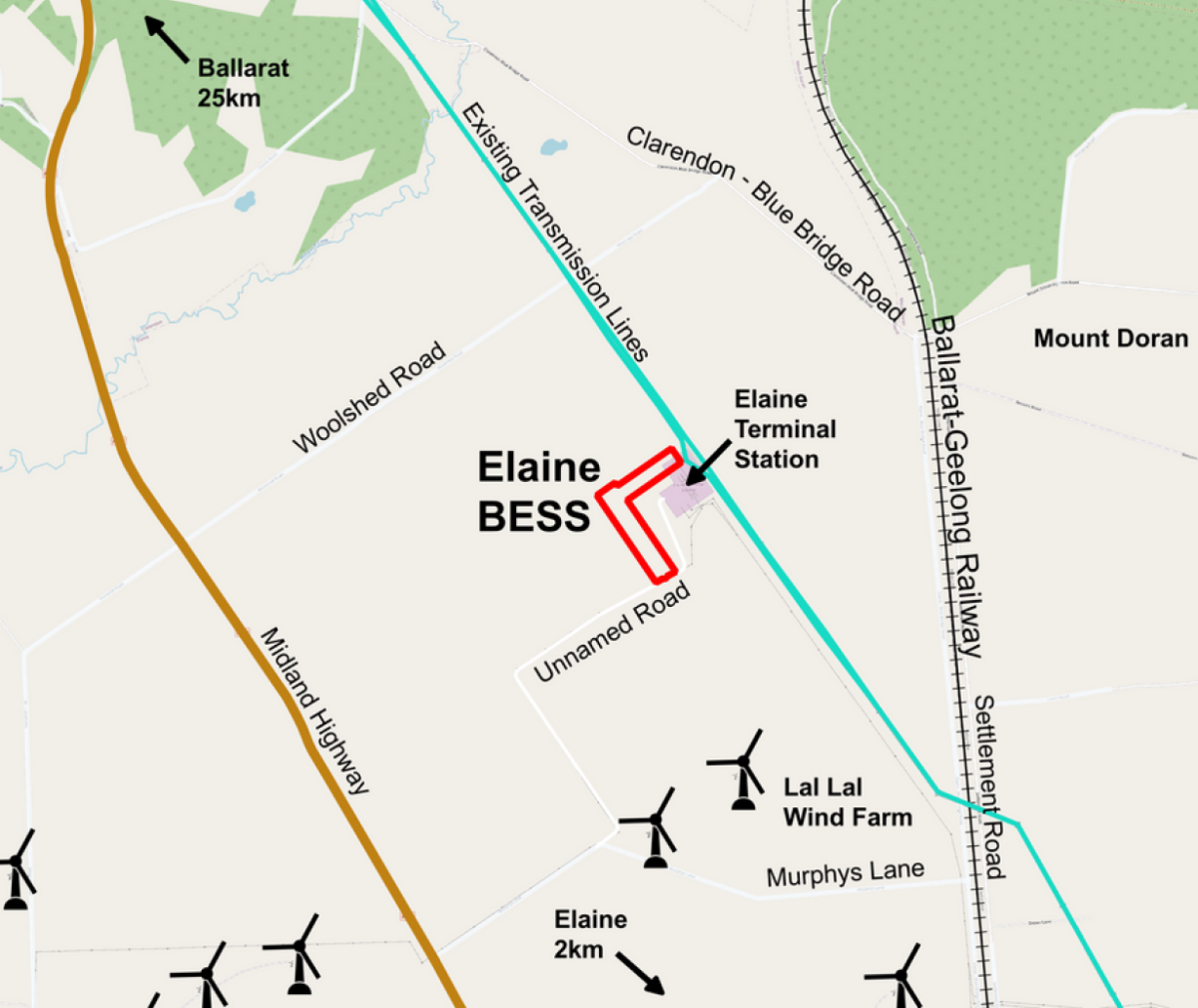BlackRock’s Akaysha Energy is upping the scope of its Elaine big battery, a storage project it is developing in the south-west of Victoria.
Initially planned to have a capacity of 200 MW / 800 MWh, the company today confirmed its scope had grown and the battery will now be targeting a storage duration of 1,244 MWh. While the battery’s revised power output has not be confirmed, it will presumably sit at around 311 MW.
The Victorian government approved the Elaine battery’s Planning Application just weeks ago, on November 17, but the public documents relating to the project still revolve around the initial proposed capacity of 200 MW / 800 MWh.
The project was initially forecast to require an investment between $400 – $500 million (USD 260 to 327 million). Again according to those earlier planning documents, the battery project was anticipated to cover a six hectare area. It is to be located 5 kilometres north west of the Victorian town of Elaine, sitting directly adjacent to the Elaine Terminal Station.
Akaysha Energy, which was acquired by US investment giant BlackRock in 2022, has been kicking goals in the Australian storage market. That same year it was awarded the contract for the 850 MW / 1,680 MWh Waratah Super Battery Project in New South Wales, despite not yet having developed an Australian battery project.
On Wednesday, it was announced the company had also won the NSW tender for its 415 MW / 1,660 MWh Orana battery.
Like the Orana battery, the Elaine battery is set to have four hours of storage. Until very recently, almost all Australia’s big lithium battery proposals and projects had no more than two hours of storage. Akaysha Energy’s CEO and managing director, Nick Carter, says four hours is set to be the “new normal” for duration in Australia.
“At Akaysha Energy, we are bullish on longer duration systems such as this four-hour system. Our in-house markets modelling, engineering and technical teams have all combined to provide us a strong view that four hours is the new normal for BESS duration in Australia,” he said.
This content is protected by copyright and may not be reused. If you want to cooperate with us and would like to reuse some of our content, please contact: editors@pv-magazine.com.









By submitting this form you agree to pv magazine using your data for the purposes of publishing your comment.
Your personal data will only be disclosed or otherwise transmitted to third parties for the purposes of spam filtering or if this is necessary for technical maintenance of the website. Any other transfer to third parties will not take place unless this is justified on the basis of applicable data protection regulations or if pv magazine is legally obliged to do so.
You may revoke this consent at any time with effect for the future, in which case your personal data will be deleted immediately. Otherwise, your data will be deleted if pv magazine has processed your request or the purpose of data storage is fulfilled.
Further information on data privacy can be found in our Data Protection Policy.